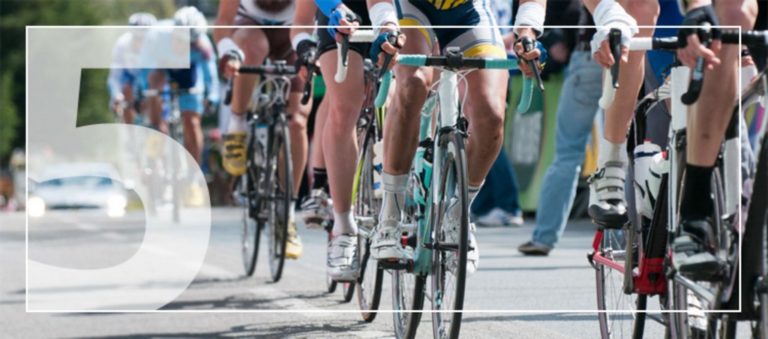Whether you are a seasoned event professional or new to the field, creating and implementing an event marketing plan can be a challenging task. There are a number of things to consider when putting your event promotion together and a solid marketing plan will ensure that your event β no matter if it’s in-person or virtual β goes off without a hitch.
Keep reading to discover the basics of event marketing, some practical tips on creating an effective marketing plan, and valuable event marketing tools and techniques that can help you target your audience and generate lasting interest in your event.
What Is an Event Marketing Plan?
Event marketing is a complex process with many moving parts. The first step to creating a successful event marketing strategy is to have a solid marketing plan in place. This plan will outline your goals and strategies for promoting your event. It will also help you track results and make necessary adjustments along the way.
There are many different aspects of event marketing β not all of which will be relevant to every event β so it’s essential to tailor your marketing plan to your individual needs. Here are some key questions to consider before developing your event marketing plan:
- What’s your event’s theme?
- What timeframe will you be working with?
- What is your budget?
- Who are you marketing to?
- What are your promotional goals?
- How will you attract attendees?
- What kind of marketing mix will you use?
- How will you measure success?
Think about these questions before drafting a plan suited to your specific event and target market. A robust event marketing plan will typically include the following components:
- Executive summary. Create an overview of your entire marketing plan, highlighting your goals and strategies as well as the event’s purpose and theme.
- Target market. Identify who you are targeting with your event and why.
- Event budget. Determine your budget and check all estimated expenses against it.
- Marketing strategy. Outline the marketing methods you will use to reach your target market.
- Promotion timeline. Provide an event marketing timeline for your promotional activities.
- Media plans. Describe which media channels you will use and how you will use them for your marketing strategy.
- Event metrics. Specify how you will track the success of your event marketing efforts.
Together, these components make up an event marketing plan that can help you increase event attendance, boost your brand, and measure your success.
How To Craft a Good Event Marketing Plan
While digital marketing tools can help you create a comprehensive event marketing plan, it’s important to understand the basics of event marketing before you start plugging in numbers and timelines.
The four steps below will help you prepare your marketing strategy by aligning your target audience, budget, and goals with measurable objectives and key collaborations.
Determine Your Budget and Goals
An event marketing plan needs to start with a budget. Be realistic about how much money you can spend on your event and allocate your funds accordingly. Make a list of all estimated costs β down to every last detail. Some examples include:
- Marketing expenses
- Venue costs
- Staffing
- Catering
- Entertainment
Once you have a clear idea of the budget, start thinking about your event’s short-term and long-term objectives. Determine what it is you are hoping to achieve with the event. Do you hope to create greater brand awareness? Attract a certain number of attendees? Generate more leads in the future? Defining your event goals will help you focus your marketing efforts and stay on track.
Make sure your goals are SMART β meaning they are specific, measurable, achievable, relevant, and timely β and that you communicate them with your entire team. Having a united vision among team members will increase your chance of putting together a successful event.
Decide Your Target Audience
Before planning your event, you need to identify the specific type of people you are targeting. The target market for an event largely determines the tone of voice, content, and design of your marketing materials.
Think about who you want to attend your event and how best to get their attention. Consider factors such as age, gender, location, interests, and occupation. For example, if you are organizing a large event for young professionals, you’ll want to think about every factor of your event β including messaging, design, the venue, and potential guest speakers β that will attract that target audience.
Once you have a good idea of who you’re targeting, it will be easier to develop marketing strategies that resonate with this particular group of potential event-goers.
Reach Out to Potential Collaborators
A lot of event marketing is built on networking and building relationships with potential collaborators, including other businesses and influencers in your industry, fellow event organizers, and media outlets.
Reach out to potential collaborators who can help you amplify your message and create a more powerful event marketing campaign. When two or more people or organizations come together to promote an event, they can each bring their own strengths to the table. This can result in a well-rounded and highly effective marketing strategy that can draw in more potential attendees.
Keep in mind that collaboration on any level requires you to understand other people’s perspectives on the event you are planning. Other stakeholders such as sponsors, vendors, exhibitors, or event partners will likely have slightly different goals than you. When planning the event, you’ll need to take everyone’s objectives into account.
Build an Email List
Email marketing is one of the most effective ways to promote your event. Of course, to take full advantage of this powerful promotional tool, you need to have a sizable and relevant email list of potential attendees.
There are several ways to build such an email list, but one of the most effective is to offer something of value in exchange for a person’s contact information. This could be a free ebook, coupon, or an early-bird discount for the event registration.
Other effective ways of building your email list include:
- Adding a sign-up form on your event website or relevant blog
- Running a contest or offering giveaways for event tickets
- Adding a subscription form to your event’s Facebook page
Once you have a list of email addresses, you can begin to send out promotional messages about your event. These messages should be carefully crafted and timed to coincide with key points in the event marketing cycle.
Design Your Event Marketing Strategy
Once you’ve completed these preparatory steps, it’s time to design your marketing strategy. This involves setting up your targeted email campaign, using social media channels to raise brand awareness and promote your event, and, if possible, implementing a content-focused, inbound marketing strategy.
Start an Email Campaign to Reach Potential Attendees
Starting an email marketing campaign is an excellent way to reach potential attendees who might not have heard about a particular event. Emails can also remind past attendees and other subscribers about upcoming events and encourage them to buy early-bird tickets.
When designing your email campaign, keep in mind the tone of voice and content that will resonate with your target audience. Imagine what your target customer would want to read in their inbox.
An email marketing tool such as Mailchimp can help segment your mailing list to personalize your promotional emails. There are several segmentation strategies, including:
- Geographic location: where your subscribers are based
- Demographics: subscribers’ gender, age, income level, etc.
- Past attendance: whether they’ve attended an event in the past
- Website behavior: what pages of your website they’ve visited
Once you’ve divided your subscriber list into segments, you can send personalized emails to your set target audience.
Promote Through Social Channels
The next step in your event marketing strategy should be to promote your event on social media. This can be achieved in various ways, but some of the most effective include:
- Creating a Facebook event page and inviting people to attend
- Posting regular updates on Twitter about the event, including images, videos, and links to relevant websites
- Posting photos of the venue and past event-goers enjoying themselves on Instagram
- Posting articles related to the event on LinkedIn and tagging potential attendees
The key here is to be consistent with your social media messaging and target your audience effectively. Try not to bombard followers with too many promotional messages, and focus on providing valuable content that will pique their interest.
Ask Event Participants to Make Social Media Posts
Encouraging participants to share social media posts about your event can be a great way to generate some extra buzz. This versatile marketing method is useful before, during, and after the event.
For example, if you’re running a conference, you could ask people to tweet about their favorite sessions or post photos on Instagram using a specific event hashtag. If you’re putting on a corporate event, you could ask attendees to post a short review on LinkedIn or share highlights of the day on whichever social media platform they prefer.
This strategy is compelling because it generates social proof. People are more likely to attend an event if they see that others have had a good experience. It can also help create a sense of community among event-goers and encourage them to return for future events.
Consider Using Content Marketing
One more way to boost your event marketing plan is to incorporate content marketing. This involves creating and sharing valuable, relevant, and consistent content to attract and engage a target audience.
Content can take many forms, such as:
- Blog posts
- Videos
- Podcasts
- Ebooks
- White papers
- Case studies
- Infographics
If you don’t have the time and resources to run a large content campaign, consider prioritizing the following two types of content:
Blog Posts
Blogging is a great way to share your event’s story and generate interest in upcoming events. Try to stay consistent with your posting β a good, attainable goal may be to publish one blog a week β and include topics that will be of interest to your target audience. For example, if you’re running a music festival, consider blogging about the event’s history, the lineup of artists, or tips for attending the festival.
This type of long-term content marketing strategy is especially beneficial for regular (monthly, biannual, or annual) events because it can help you establish authority in your field and keep your events top-of-mind for potential attendees.
White Papers
White papers are long-form documents (typically around 5 to 10 pages) that provide in-depth information on a particular topic.
Free white paper downloads can be added to your website to attract potential attendees by highlighting the benefits of attending your event. They can educate potential sponsors and partners about the topic and value of your event.
Use Event Management Software To Streamline Event Marketing Planning
Building an effective event marketing plan can be a challenge, but with some effort, creativity, and the right marketing tools, it’s certainly achievable.
If youβre looking for help with your marketing strategy, Events.com can assist you in streamlining your event planning process. With our innovative event management software, you can easily create multichannel advertising campaigns for your events, manage your registrants and sponsors, generate custom data reports, and track conversions.Take the guesswork out of event marketing planning and achieve your marketing goals faster and easier. To learn more about our event management solutions, contact us at help@events.com today.






